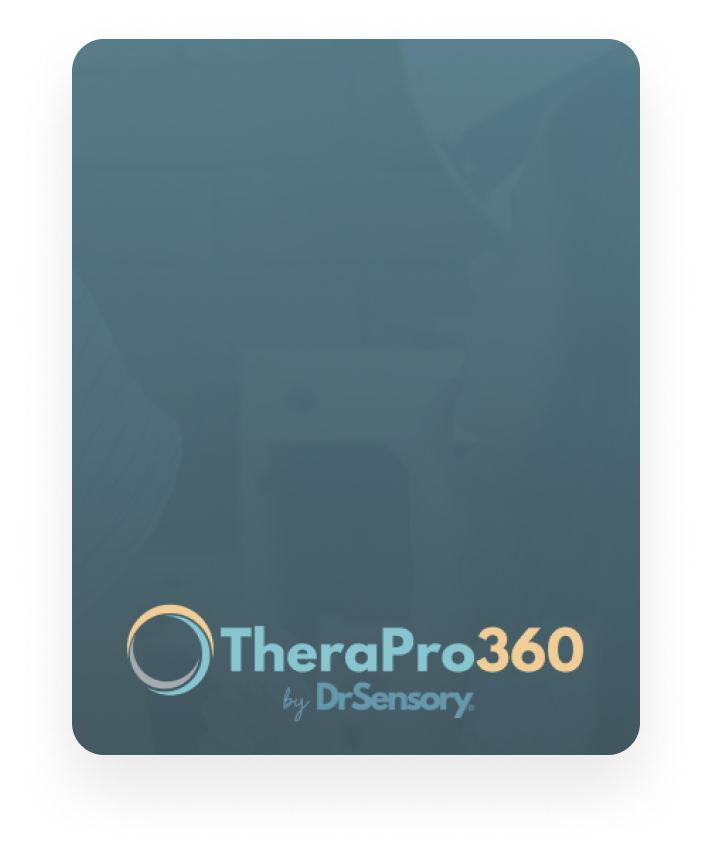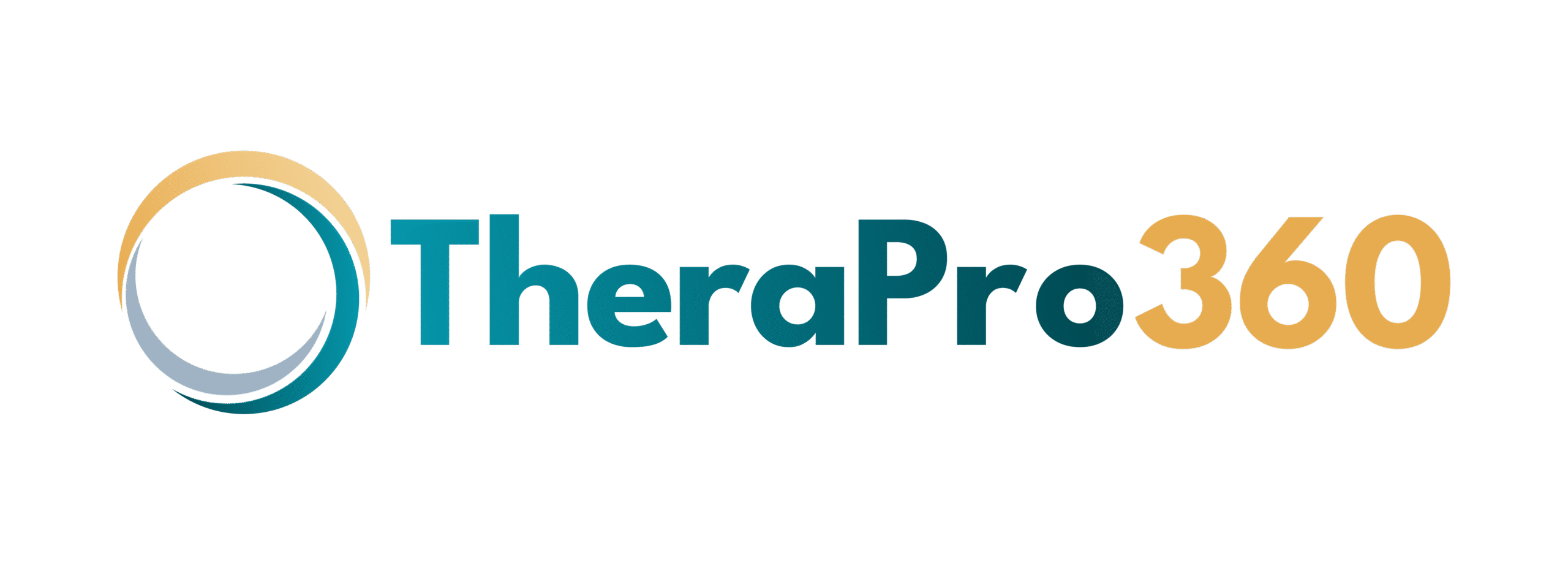We Keep Your Patient Information Private, and we are HIPAA Compliant.
We will never share your information. Protecting your data is what we promise.
TheraPro360 is dedicated to protecting your data. We will never sell, share, or review your proprietary data. Each client portal is secured with no access points but your own!

We are a HIPAA Compliant Practice Management Software system that therapists trust!
With many years of experienced in data security, our team of developers and security officers ensure your data is protected and your PMI is secure! Our platform is also HIPAA compliant!
Quick Links
Protecting your data is paramount, and our Data Security Resources offer comprehensive guidance to safeguard your information effectively. Gain insights into our advanced security measures designed to keep your data secure and confidential in the ever-evolving digital landscape.

What is HIPAA Compliance?
HIPAA stands for the Health Insurance Portability and Accountability Act, which was enacted in 1996 to protect sensitive patient information. This law sets national standards for the protection of personal health information (PHI) and requires healthcare organizations to implement certain security measures to safeguard this data.

What is 2FA login?
2FA (Two-Factor Authentication) login is a security measure that requires users to provide two forms of identification in order to access their accounts. This can include a combination of something the user knows, such as a password or PIN, and something they have, such as a physical device like a smartphone or security token.

What is data security?
Data security refers to the protection of sensitive information from unauthorized access, use, disclosure, modification, or destruction. In the healthcare industry, this includes protecting patients’ personal and medical information from cybersecurity threats and breaches.
As technology continues to advance and more data is being collected and stored electronically, ensuring data security has become a crucial aspect of HIPAA compliance. Healthcare organizations are responsible for implementing appropriate safeguards to protect patient data and prevent any potential breaches.
It is important for healthcare organizations to take all necessary precautions to protect patient information not only for legal reasons but also for the trust and confidence of their patients. With the increasing amount of data breaches in the healthcare industry, it is crucial for organizations to stay vigilant and prioritize data security at all times.

What if I get locked out of my account?
In the unlikely event that you get locked out of your TheraPro360 Practice Management Software account, you can easily regain access to your account by following these steps:
- Use the Forgot Password feature – If you are unable to reach your system administrator, you can use the “Forgot Password” link on the login page to reset your password. This process will require you to answer security questions or verify your identity through email or phone verification.
- Contact your organization’s system administrator – They will be able to reset your password and help you regain access to your account.

How do you secure our data?
There are several measures organizations can take to secure patient data and comply with HIPAA regulations. Some of these include:
- Regular audits and risk assessments: Conducting regular audits and risk assessments can help identify any potential vulnerabilities in the system and address them promptly to prevent data breaches.
- Encryption: Encrypting sensitive data, both when it is being transmitted and stored, helps prevent unauthorized access.
- Access controls: Implementing role-based access controls ensures that only authorized individuals have access to patient data.
Implementing multi-factor authentication, using secure communication channels, and regularly updating software are some additional ways to ensure the security of patient data.

Who can see my patient data?
Your patient data is strictly confidential and should only be accessed by authorized individuals such as healthcare professionals directly involved in your care. This includes doctors, nurses, and other medical staff who need to access your information to provide you with proper treatment.
However, it is important to note that there may be situations where your data can be legally accessed by others without your consent. This can include court orders, public health emergencies, or if you have given permission for a specific individual or organization to access your data.
While healthcare providers are required to take steps to protect patient data, it is ultimately up to the individual to take precautions and carefully consider what information they are sharing and with whom. Keep in mind that no system is completely secure from potential risk of breaches or hacks.

What is a cloud hosted software?
Cloud hosted software, also known as Software as a Service (SaaS), is a type of software delivery model where the application is hosted and managed by a third-party provider on their own infrastructure. This means that instead of installing the software directly on individual computers or servers, users can access it through the internet from any device with an internet connection.
Some examples of cloud hosted software in healthcare include electronic medical record systems, patient portals, and telehealth platforms. These types of applications are becoming increasingly popular in healthcare due to their ease of use, flexibility, and cost-effectiveness.
In this model, the responsibility for maintaining and securing the software and its data falls primarily on the provider rather than the user. This can alleviate the burden on healthcare organizations to manage their own servers and IT infrastructure, freeing up resources that can be better allocated towards patient care.
Cloud hosted software also allows for easier collaboration and information sharing among healthcare providers. With data stored in the cloud, medical professionals from different locations and organizations can access and update patient records in real time, leading to more efficient and coordinated care. Cloud computing also offers scalability for growing healthcare organizations. As needs increase, they can easily add or remove users, storage space, or features to their cloud-hosted applications without having to invest in new hardware or software.

What steps does TheraPro360 take to protect our clients?
At TheraPro360, we take the security and confidentiality of our clients’ information very seriously. We understand the trust placed in us when sharing personal and sensitive health data, and it is our top priority to keep this information safe.
To ensure the protection of our clients’ data, we have implemented various security measures. These include:
- Secure network: Our network is constantly monitored and updated to prevent unauthorized access.
- Encryption: All data transmitted through TheraPro360 is encrypted using industry-standard protocols.
- Limited access: Only authorized personnel have access to client information, and strict protocols are in place for granting or revoking access.
- Regular backups: We regularly back up all client data to ensure it is not lost in the event of hardware or software failure.
- Employee training: All employees undergo thorough training on data security and privacy to ensure they are aware of best practices and potential risks.
- Compliance with regulations: We comply with all relevant data protection laws and regulations, including HIPAA (Health Insurance Portability and Accountability Act) for our US clients.
At TheraPro360, we take the security and privacy of our clients very seriously. In addition to the measures listed above, we also have a dedicated team that continuously monitors our systems for any potential vulnerabilities or breaches.
How we compare to other
Practice Management Software on the market.
As therapists, we have thought through all aspects of managing a therapy practice – and we have opened up our platform for you to use! Here is how we compare to others.
| Features | TheraPro360 | Others |
|---|---|---|
| Migrating Data | ✔ Migrate data over to our software with a click of a button. | ? You will have to manually add in data for each of the fields or hire a specialist. |
| Data Security | ✔ All our data is privately stored on the cloud, and we have many levels of security, including 2FA. | ? Other platforms are using hosting platforms that are not as secure. |
| Usability | ✔ Our platform was built with therapists in mind. It is so simple to use, you will never want to leave! | ? Other practice management softwares are complex and it takes time to learn how to use them. |
| Storage | ✔ We offer our customers the ability to store more data than other competitors. | ? If you go over data, you will get overages. |
Streamline Your Clinic Software With Ease
Experience the difference with a software solution that seamlessly integrates into your clinic’s workflow, ensuring all your administrative, clinical, and financial processes run effortlessly. Designed with user-friendliness and efficiency in mind, our software takes the complexity out of managing a therapy clinic. From automated scheduling and comprehensive EHR management to real-time patient engagement, streamline your operations with ease and focus on delivering exceptional care. Embrace the power of technology to transform your clinic’s potential and set a new standard in your workflow.
Our Promise To you.
We keep your data private and confidential.
Your information is safe with us.

Cloud Based
With cloud-based software, all that is needed is an internet connection, allowing for easy access from anywhere and at any time.

2FA Login
2FA requires users to provide two forms of identification when logging into the system, typically a password and a unique code sent to their phone or email.

HIPAA Compliant
All patient information entered into the system is converted into code, making it unreadable to anyone without authorized access.

Secure PMI
Role-based access control allows practices to limit access to patient information based on an individual’s job requirements within the practice.
We are devoted to assisting our customers in providing exceptional care in their day-to-day practice needs.
10k+
Patients using our software to connect with their therapist.
98.8%
Therapists report our platform being the easiest to use.
32k+
Hours spent on research, design, and development of your new easy-to-use software.

Features you will love
FAQ
What role does HIPAA play in healthcare data security?
HIPAA sets national standards for the protection of sensitive patient health information. It requires healthcare providers to implement technical, physical, and administrative safeguards to ensure data confidentiality, integrity, and availability.
How does TheraPro360 ensure compliance with data security regulations?
As a HIPAA-compliant platform, TheraPro360 follows strict privacy and security protocols to protect patient data. We also regularly review and update our policies to adhere to any changes in regulations.
How can telemedicine platforms ensure patient data security?
Telemedicine platforms can ensure patient data security by implementing strong encryption protocols, maintaining secure network connections, and following strict authentication processes. Regular security audits and updates to software also help in safeguarding against vulnerabilities.
What steps should be taken if a potential data breach is suspected?
If a data breach is suspected, it is crucial to immediately report it to your organization’s IT department or security team. They will investigate the incident, determine its scope, and take steps to mitigate any potential damage. Additionally, affected parties should be notified as required by law or organizational policy.
Why Is Data Encryption Important in Healthcare?
Data encryption ensures that sensitive patient information is converted into a secure format, protecting it from unauthorized access during transmission or storage.
What Are the Consequences of Non-Compliance with HIPAA?
Non-compliance with HIPAA can result in hefty fines, legal consequences, and damage to the reputation of the healthcare organization or provider.
How Often Should Security Protocols Be Reviewed?
Security protocols should be reviewed regularly, at least annually, and updated whenever there are changes in technology, regulations, or identified vulnerabilities.



